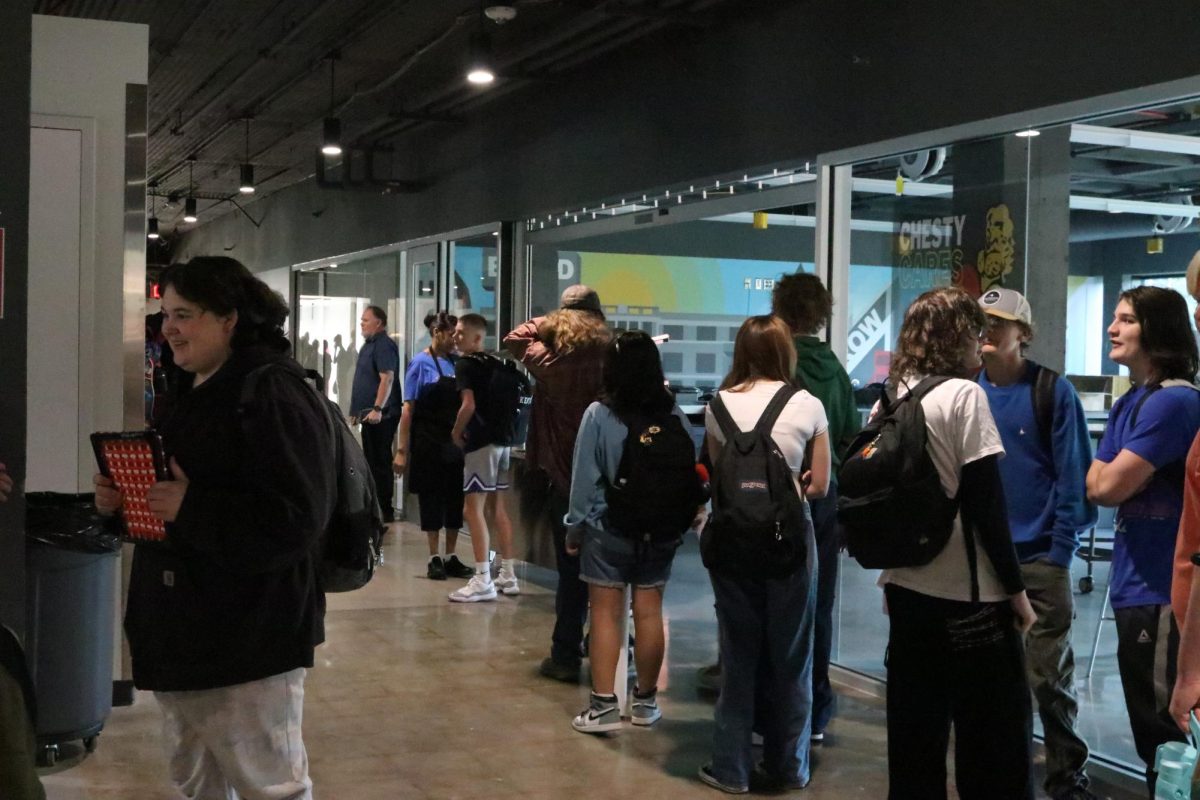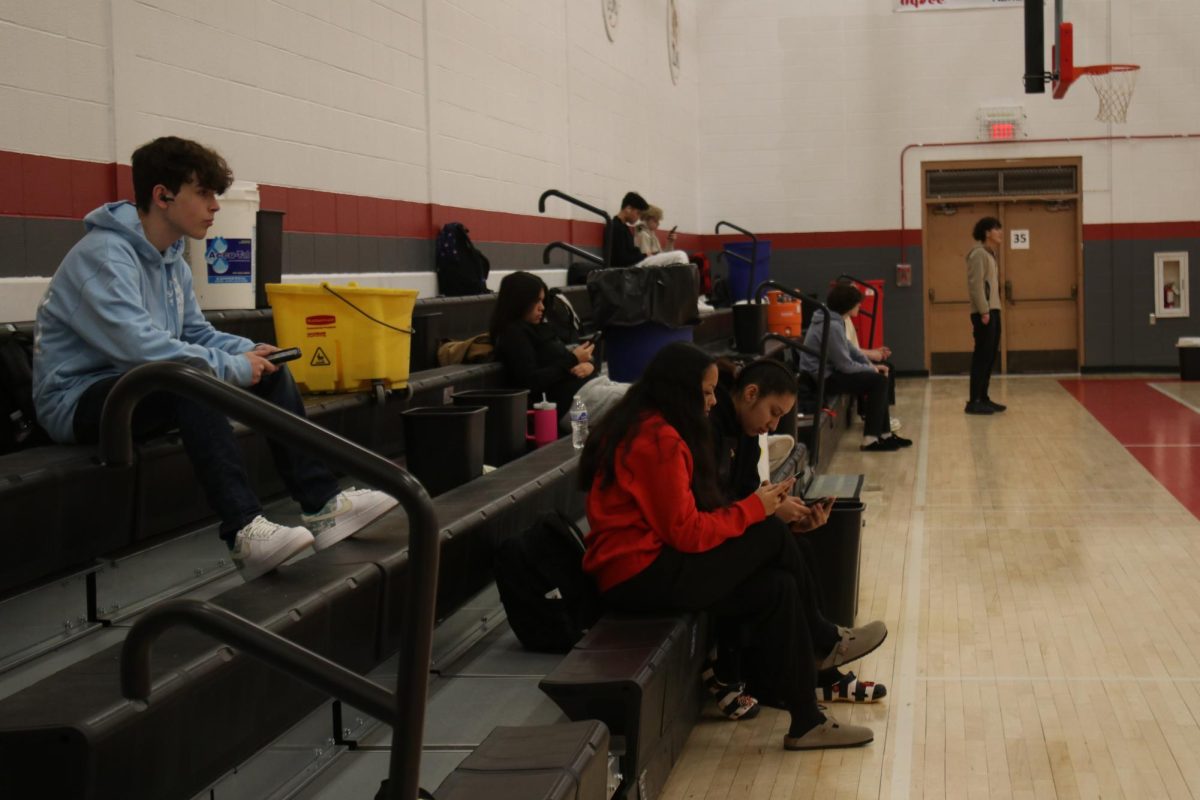When Mary thinks about college next fall, it’s with more anxiety than most.
The senior’s future rests on the shoulders of others, the Kansas Legislature, and there is nothing she can do about it.
This year, the Kansas Legislature is considering repealing the law that allows undocumented students the ability to earn reprieves from paying out-of-state tuition when they have lived in the state for three years and have plans to legalize their status.
Mary is one of the hundreds of students this potential change would affect.
The Budget isn’t using Mary’s real name at her request because of her concerns about privacy.
Mary was born in Mexico but has lived in the United States for nearly 13 years — spending most of that time as an undocumented resident. Now, she has more reassurance regarding her status in the United States.
In June, the Obama Administration began a program that allows undocumented youths to stay in America for two years. Beginning in August, Mary applied for the chance to stay under the deferral program.
“I’m not exactly undocumented now. . . but I’m not a resident and citizen. It’s complicated,” Mary said. “I’m not legally here, but I’m allowed to stay here.”
The tuition law has been contentious from the time it was passed in 2004 with almost yearly attempts to repeal it. Chances for change may be stronger this year because the Legislature has swung more conservative.
Rep. Brett Hildabrand, a Merriam Republican who supports the repeal, told the Lawrence Journal World that voters have told him they don’t like that the current law “rewards” people who break the law by immigrating illegally.
For Mary, repeal of immigrant tuition law in Kansas would affect her chances of going to college in the fall.
“I won’t be able to pay,” she said. “I will have to pay out-of-state tuition if I want to go to college.”
This is something her family can’t afford. The difference between in-state and out-of-state tuition is huge. At KU next year, in-state freshman will pay $8,790 for tuition. Non-resident students will pay $22,860.
Despite the fact that Mary has spent most of her life in the United States, her immigration status means she doesn’t qualify for financial aid or many scholarships, as most are for U.S. citizens and permanent residents.
“I can’t have health care, stuff like that,” Mary said. “I can’t be helped by the government.”
Mary is not the only student struggling with these problems.
“People here at Lawrence High [are affected by this], and I imagine probably at Free State, too,” she said. “Everybody assumes we’re citizens, but we’re not. There’s people living around you that are undocumented.”
Counselor Lori Stussie said undocumented students usually don’t tell her or administrators about their status.
“A lot of families are worried about being arrested and sent back to their native country,” Stussie said. “That’s the number one worry.”
Still, she finds herself helping families deal with difficult college situations.
“We do have several sets of parents who are here with various visas,” Stussie said. “We’ve kind of developed some lines of communication between different colleges, and we try to set them up with the people there that can help them.”
Sometimes the best option is to become a citizen.
“The quickest route to financial aid is to become a U.S. citizen,” Stussie said. “It is clearly in their best interest financially, if it is possible at all, to become citizens and gain citizenship, but that takes several years.”
The time commitment isn’t the only obstacle these families encounter when wanting to gain citizenship.
“There are a number of requirements a person must meet before they can even be eligible to naturalize,” said David Rubenstein, who teaches about immigration law at Washburn University.
If neither the teenager nor his parents are in the country legally, they have no way to earn citizenship under current law, Rubenstein said. Congress is considering changes, but immigration law remains a contentious political issue.
Some students choose not to become U.S. citizens for emotional reasons. For senior Elbeg Erdenee, who is an international student, this is exactly why she will stay with her current status.
“I think it’s a more sentimental reason. I don’t want to give up my Mongolian citizenship, because there’s not dual citizenship between Mongolia and the United States,” Erdenee said. “But practically speaking, to become a citizen or to become a permanent resident would be helpful in terms of future scholarships, but I wouldn’t consider it.”
Erdenee, as a legal alien, suffers some of the same setbacks as Mary.
Her junior year, Erdenee scored high enough on the PSAT to become a National Merit Scholar but did not qualify because of her status as a legal immigrant. But for her, the financial rewards of this honor wouldn’t impact her ability to go to college.
“It doesn’t really matter in the end,” Erdenee said. “It was just a prestige thing, something you could put on your resume. The money’s not going to matter much.”
In the case of other students paying in-state tuition, Erdenee doesn’t feel like repealing the law is fair.
“I would say, I think tuition rates should be the same for everyone,” Erdenee said.
Stussie said if the tuition law changes, it would limit the futures of some families.
“We all know that education is one key to advancement in society, and it’s very hard when there are roadblocks to receiving secondary education,” Stussie said. “It may just, financially, put college out of the picture for some families.”
Mary argues repeal of the immigrant tuition law is an outrage.
“Some undocumented students come here [and] have been living here their whole lives,” Mary said. “Why can’t they stay here to study? Why do they have to pay out-of-state if they’ve lived here most of their lives?”
For now, Mary is waiting for her future to be decided.
“It’s a huge factor in my life,” she said. “If it is repealed my chances of going to college are going to be slimmer than they are now.”














